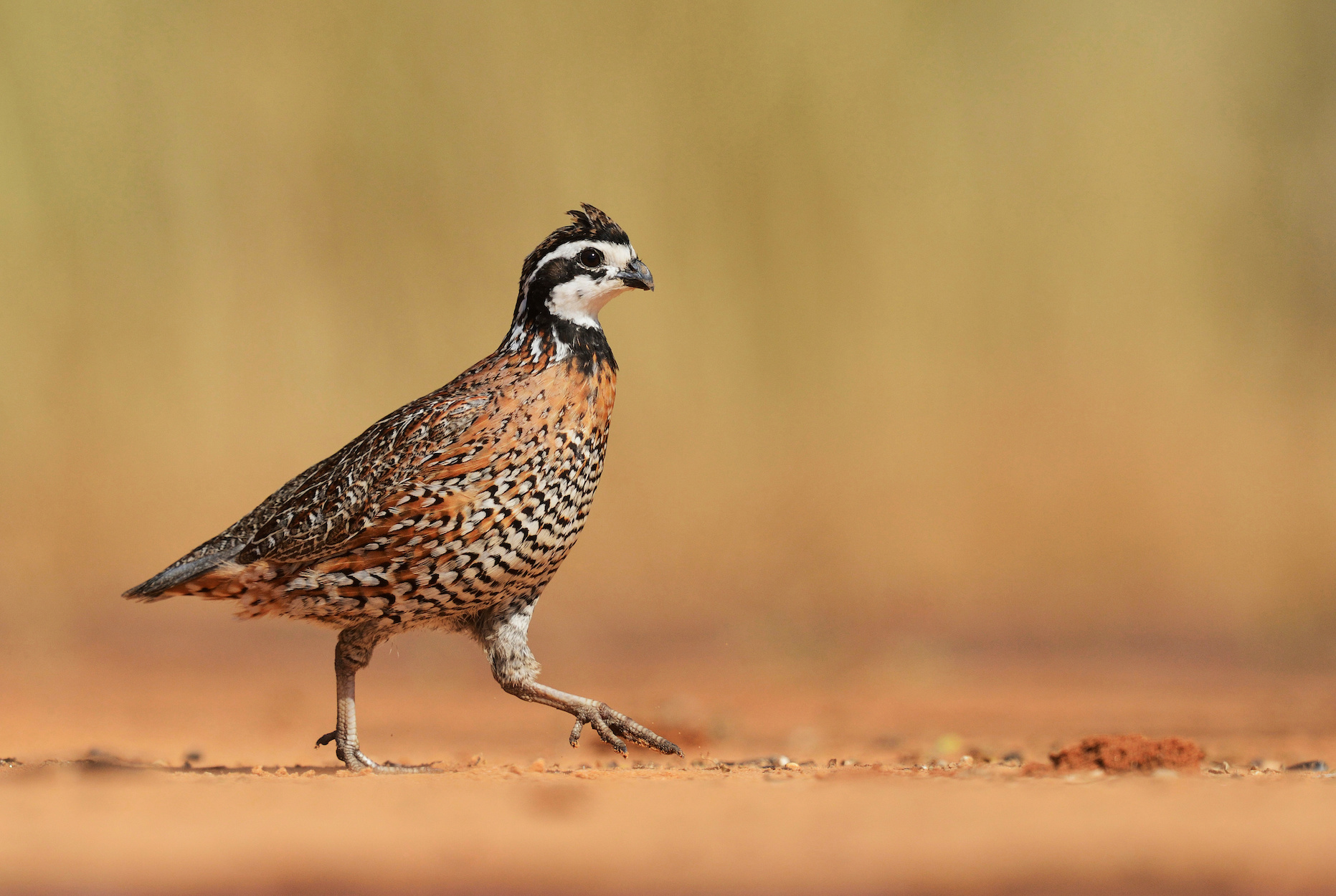A new medicated feed that combats deadly parasites in wild quail will be available to the public starting this fall. The new drug was developed by researchers at Texas Tech University with the financial support of Texas bird hunters, and it has proven effective in experimental settings on multiple ranches in the Lone Star State.
The U.S. Food and Drug Administration approved the aptly-named QuailGuard for public use on May 23, Texas Monthly reports. This came after more than a decade of research, testing, and careful field applications, which were funded in large part by the Texas quail hunting community. Although there are other medicated feeds approved for use in farmed quail, this is the first one to be approved for wild populations, the FDA points out in a press release. It’s also reportedly the first publicly-available FDA-approved medication for wild animals.
The search for a medication that could help wild quail began in 2010, which was a horrible year for wild birds in Texas. After seeing mysterious population crashes in the Rolling Plains region, a historic hotspot for Northern bobwhites, hunters started thinking about solutions. A group of those hunters, many of them members of the Park Cities Quail Coalition in the Dallas area, raised $7 million to fund a long-term research project led by Ron Kendall, a scientist and wildlife professor who runs the Wildlife Toxicology Lab at Texas Tech University.
A quail hunter himself, Kendall started by ruling out the most common causes behind the boom-and-bust cycles that have long defined Texas quail populations: drought and poor habitat.
Read Next: The Biggest Fire in Texas History Will Help Quail Someday. Right Now It’s Killing Them
“Everything was set up for a great hunting season in 2010,” Kendall told the Dallas News in 2019. “The habitat was in perfect shape throughout the summer across the rolling plains. You had to be really careful driving around ranch roads because there were so many broods. Then, come fall, you couldn’t hardly find a quail. I’m not talking about losing a few. Many ranches lost 70 to 90 percent of their birds.”

Working with other biologists from Texas Tech and Texas A&M Universities, Kendall’s team trapped and studied thousands of birds over the following years. The resulting data pointed to two parasites as the leading culprits behind the 2010 crash. Researchers found that two parasites that had already been recognized in wild quail — eyeworms and caecal worms — were even worse than originally believed. Both worms reproduce rapidly in the birds’ eyeballs and intestines and ultimately compromise their vision, rob them of nutrients and make them more susceptible to predators. And because quail live in coveys, the parasites can spread quickly through wild populations.
Kendall’s research found that up to 98 percent of quail populations in the Rolling Plains were carrying these parasites, which can also affect domestic poultry. This meant there was already an available cure in the form of fenbendazole, a de-worming drug that livestock growers have long incorporated into their feed. Kendall suspected it would have the same positive effects on wild birds, and his son helped devise a specialized feeder that gave quail cover from predators.
The results of their initial tests on a ranch in Mitchell County were overwhelmingly positive. The FDA observed follow-up studies, which showed that the drug was both safe and effective for wild birds.
Read Next: O’Connor at the Border: A Short-Lived Hot Spot for Hunting Gambel’s Quail
“Where we were using the medicated feed, we weren’t seeing quail crashes and were seeing sustainable quail populations,” Kendall told Texas Monthly.
The medicated feed is now being manufactured at a facility near Fort Worth under the name QuailGuard. The company producing the feed is co-owned by Kendall and the Park Cities Quail Coalition, which plans to use part of the profits to fund conservation and education efforts, according to Texas Monthly.

